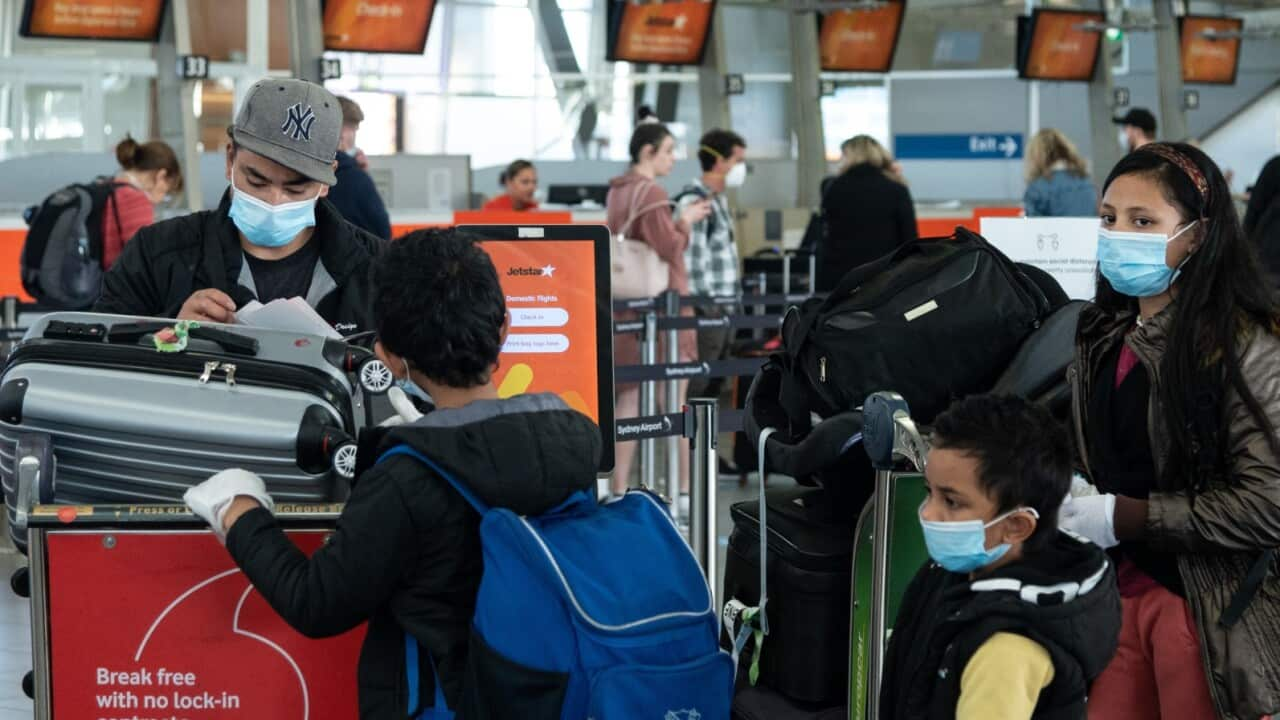Each year, hundreds of people attract big hefty fines or have their visas cancelled on arrival for bringing prohibited food items with them.
Highlights:
- 1,358 people of Indian nationality were issued infringements on arrival in Australia during 2019-20
- Each was fined $444 on arrival for bringing in prohibited substances
- 14 international visas have been cancelled since 1 October 2019, none of them was an Indian national
Australia's tough biosecurity laws prohibit certain food items, plants, and meat products from entering the country, as these items pose a serious threat to the Australian agriculture industry and the environment. Minister for Agriculture, Drought, and Emergency Management, David Littleproud said, “these items also pose a threat of spreading a serious disease like African swine fever and a majority of these threats are brought in Australia by the international travellers bringing prohibited food items in their baggage”
Minister for Agriculture, Drought, and Emergency Management, David Littleproud said, “these items also pose a threat of spreading a serious disease like African swine fever and a majority of these threats are brought in Australia by the international travellers bringing prohibited food items in their baggage”

Australian Agriculture Minister David Littleproud addressing a press conference Source: AAP
In response to a query from SBS Punjabi, the Department of Agriculture, Water, and the Environment has confirmed that a total number of 1,358 people identifying themselves as Indian nationals on their arrival card have been issued with an infringement notice of $444 for bringing the prohibited food items, during the 2019-20 financial year.
The Department has confirmed to SBS Punjabi that no Indian nationals have had their visas cancelled on arrival for a serious biosecurity violation.
The most common infringements made by Indian arrivals in Australia were possession of herbs and spices, legumes, seeds, fruit like apple, pear and quince, and fruit products.
The table below shows the type of undeclared commodities brought in by Indian nationals who received infringement notices. These items were forfeited by the authorities and fines were issued. The Department also highlighted the fact that in cases of serious violations like false documentation or failure of declaration on the arrival card, visas can be cancelled and international travellers can be deported.
The Department also highlighted the fact that in cases of serious violations like false documentation or failure of declaration on the arrival card, visas can be cancelled and international travellers can be deported.

A list of banned food items and percentage of undeclared commodities brought in Australia by Indian nationals Source: Supplied
Minister Littleproud said, "A total number of 14 visas have been cancelled since 1 October 2019 including two male Ukrainian nationals for the attempt to bring in nearly 5 kg of pork and pork products and seriously breaching Australia’s biosecurity laws.”
The travellers contravened subsection 533(1) of the Bio security Act 2015 by knowingly providing a false or misleading document (i.e. the Incoming Passenger Card) to a biosecurity officer on arrival to Australia.
“The punishment must fit the crime and that’s why we introduced this legislation to cancel visitor visas when a passenger commits a significant biosecurity breach or repeatedly contravenes our biosecurity laws,” he added The Department has confirmed to SBS Punjabi that no Indian nationals have had their visas cancelled on arrival for a serious violation.
The Department has confirmed to SBS Punjabi that no Indian nationals have had their visas cancelled on arrival for a serious violation.

An Australia border Force official at Perth airport Source: AAP
A spokesperson further said, "The relevant contravention of the law is about providing false or misleading information on the incoming passenger card. It is about failing to declare goods (especially food), not about bringing in 'prohibited food'. All travellers should declare food; a biosecurity officer can then assess whether there are relevant conditions that need to be met; whether they are met and/or whether they can keep the goods."
Declaration on the arrival card by international travellers to Australia
Everyone entering Australia needs to declare their luggage items on the incoming passenger card. This is a legal document and requires the passenger to declare if they are carrying certain food or animal products.
Failing to declare biosecurity risk goods may attract an infringement notice for $444, and legislation is currently being considered by Parliament to increase this penalty to $2664 for certain high-risk products. For serious breaches, they may also be subject to criminal prosecution. If convicted, they could be penalised up to $444,000 and could face up to 10 years in jail.
For serious breaches, they may also be subject to criminal prosecution. If convicted, they could be penalised up to $444,000 and could face up to 10 years in jail.

A sample incoming passenger card Source: abf.gov.au
Metropolitan Melbourne residents are subject to Stage 4 restrictions and must comply with a curfew between the hours of 8 pm and 5 am.
The only reasons for Melbourne residents to leave home during these hours are for exercise, to shop for necessary goods and services, for work, for health care, or to care for a sick or elderly relative.
All Victorians must wear a face covering when they leave home, no matter where they live. People in Australia must stay at least 1.5 metres away from others. Check your state’s restrictions on gathering limits.
If you are experiencing cold or flu symptoms, stay home and arrange a test by calling your doctor or contact the Coronavirus Health Information Hotline on 1800 020 080. News and information is available in 63 languages at





